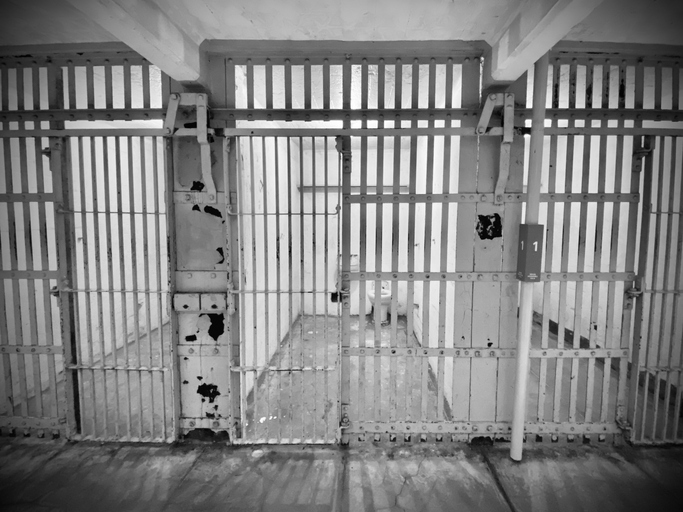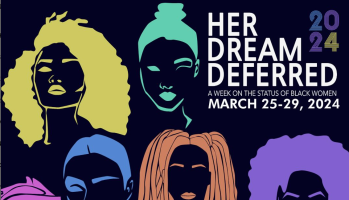
Source: samuel howell / Getty
We all know that the U.S. justice system plays around with Black people’s lives like poker chips and the courtroom was a Las Vegas casino. It’s as if Black people are disposable, especially if we have criminal pasts or if cops, prosecutors, judges or juries even suspect us of committing a crime—whether there’s physical evidence connecting us to the crime or not.
In 1990, 65-year-old Crosley Green was convicted by an all-white Brevard County, Florida, jury of murder, kidnapping and armed robbery for the 1989 death of Charles “Chip” Flynn, who was killed during an apparent carjacking. In 2021, after spending 33 years in prison for a crime he maintained he did not commit, Green was released from prison after U.S. District Court Judge Roy B. Dalton Jr. of the Middle District of Florida decided in 2018 to set aside Green’s conviction and grant him a “conditional release citing concerns over the Covid pandemic and sent the case back to the state to free Green or hold a new trial,” according to ABC News.
According to his attorneys, there was zero physical evidence linking Crosley Green to the crime, and prosecutors failed to turn over evidence, which violated Green’s constitutional right to a fair trial. Dalton ruled that retired Assistant State Attorney Chris White violated the “Brady rule,” which requires prosecutors to disclose material evidence favorable to a defendant. “He concluded White should have turned over to the defense notes of conversations with the first two sheriff’s deputies who responded to the Flynn shooting and told him they suspected Flynn might have been shot by his ex-girlfriend — the star prosecution witness,” ABC reported.
But despite all of that, the U.S. Court of Appeals for the 11th Circuit rejected any claims that Crosley Green didn’t receive a fair trial and ruled that evidence discovered after the trial that his attorneys said would exonerate him was “strictly circumscribed” and would not have changed the results of his original trial. So, Green has been ordered to return to prison after getting a taste of freedom for two years.
From ABC:
“The most important thing is an innocent man has served 33 years in prison and is going back in for a crime he didn’t commit,” one of Green’s attorneys, Jeane Thomas, told ABC News.
Thomas said three key prosecution witnesses, including Green’s sister, recanted testimony that Green, who is Black, confessed to fatally shooting Charles “Chip” Flynn, a 21-year-old white man during a 1989 carjacking, alleging they were all coerced by prosecutors and investigators into lying on the witness stand.
Additionally, Green’s legal team said the prosecution never turned over to the defense evidence that the two sheriff’s deputies who initially responded to the shooting did not believe the sole eyewitness, Flynn’s ex-girlfriend, a white teenager, who claimed a “Black guy” committed the slaying.
The U.S. Supreme Court decided in late February not to review Green’s case, exhausting his final appeal.
Green, 65, is scheduled to report to the Florida Department of Corrections by Monday to resume his life sentence. But, he said he has not given up and hopes he will walk free again.
“It’s bad, but it ain’t enough to affect me any kind of way. It can’t make me feel down, out and stuff like that because I came too far,” Green said in a video statement released to ABC News by his lawyers. “There could be a lot more I’d like to do. But in reality, one day I’m going to get to do it. Right now, I’m going to abide by the rules about what was set forth and be returned back to prison.”
Even one of the two responding officers to Flynn’s shooting says she believes Green is innocent and that she’s “devastated” he’s being sent back behind bars.
“He doesn’t belong there. He spent too many years there to start with. And to this day, I’ll say he did not kill that boy,” retired Brevard County Sheriff’s Office Major Diane Clark said. “When I got the news that he was going back to prison, I just felt terrible about it.”
Here are some details regarding Flynn’s killing and Green’s conviction, as reported by ABC:
Flynn’s slaying unfolded in the early morning hours of April 4, 1989. His ex-girlfriend, identified in court documents as Kim Hallock, claimed Flynn came to her house to discuss their relationship and they ended up going to a Little League baseball park in Titusville, Florida, where they smoked marijuana and talked. The then 19-year-old Hallock claimed a “Black guy” approached the pickup truck they were in and carjacked them at gunpoint, the court records state.
Hallock, who testified at Green’s trial, claimed the assailant tied Flynn’s hands behind his back with a shoestring, got into the driver’s seat of the pickup and drove them to a remote orange grove, according to the court documents. She claimed that while driving the vehicle, the assailant shifted the gear shift while pointing the gun at her, according to the court records.
While at the orange grove, Hallock alleged the armed perpetrator forced her from the vehicle, according to the court records. While they were outside the truck, Flynn managed to retrieve his handgun Hallock had surreptitiously placed on the seat under a pair of jeans and despite his hands still tied behind his back, managed to fire a shot at the assailant that missed, according to court documents.
Hallock maintained that after Flynn fired the gun, she broke free from the assailant, jumped in the pickup and fled, according to court documents. She claimed she heard several shots as she drove away. She told investigators she went to Flynn’s best friend’s house and called 911, according to court records.
“This is something that has always kind of stuck in my throat for years: She went past houses, she went past a convenience store that’s open 24 hours a day. She passed another pay phone. She went past Parrish Medical Center, which is a hospital in that area, and went to his (Flynn’s) friend’s house to call 911,” Clark told ABC. “My own belief is he might have survived had he had medical care sooner.”
On top of all of that, Hallock initially told investigators she ” really didn’t get a good look” at Green, and Thomas told ABC that his client “did not resemble” the police sketch of the assailant “in any way, shape or form.” Thomas also said during trial that it was possible Hallock killed Flynn herself.
Listen: All I’m going to say is it wouldn’t be the first time a white person committed a violent crime and told law enforcement a “Black guy” did it. And it wouldn’t be the first time cops, prosecutors or juries took it at face value and decided an innocent Black man was guilty.
Thomas told ABC that Crosley Green’s defense team is “out of legal options in court at this point,” and that they are exploring the options of getting the state of Florida to grant Green parole or petitioning Florida Gov. Ron DeSantis to grant clemency. But if Green’s freedom is in the hands of America’s favorite white nationalist governor who wishes “wokeness” was a sentient being he could have arrested and thrown in prison, things just are not looking good for Green. It’s not like DeSantis is going to admit that systemic racism is what likely convicted Crosley Green in the first place.
SEE ALSO:
No Justice For Shanquella Robinson After Prosecutors Decline Charges
The post Black Man Ordered To Return To Florida Prison He Spent 33 Years In For A Crime He Says He Didn’t Commit appeared first on NewsOne.
Black Man Ordered To Return To Florida Prison He Spent 33 Years In For A Crime He Says He Didn’t Commit was originally published on newsone.com














